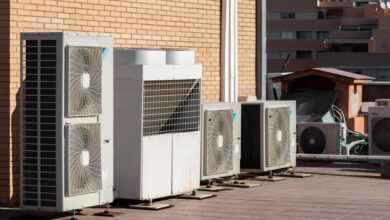5 Common Factors in Causing Plumbing Leaks

Have you ever noticed a leak in your home and wondered where it was coming from? If so, then you’re not alone. Plumbing leaks are common problems that can be frustrating to fix and expensive to repair. Luckily, many factors cause plumbing leaks, some of which are more common and easily corrected than others. In this article, O’Briens Plumbing which sell plumbers in Wangaratta, will walk us through some of the most common causes of plumbing leaks so that you can spot them if they arise on your property.
Blocked drains
If you think your drains are blocked, do not panic. There are several ways to unblock them. You can use a plunger and force the water out of the drain by using suction power. You can also try using a chemical drain cleaner or call a plumber if you’re unsure about how to use these methods properly or have tried them unsuccessfully.
Damaged pipes or fittings
Plumbing leaks can be caused by any one of the following factors:
First, water damage due to freezing. If your pipes have been exposed to cold temperatures, they may freeze and burst. This is especially likely if you live in an area where winter temperatures are below freezing for long periods. You should check all pipes for signs of frost accumulation before using your faucets and drains, or you could face a costly repair bill later on.
Second, corrosion from acidic materials such as bleach or acids found in some household cleaners can cause corrosion that damages metal pipe fittings over time, leading to leaks in your plumbing system. Acidic materials should never be used near any part of your plumbing system; always read manufacturer instructions carefully before using them so that you don’t create problems for yourself later on down the road when trying
Faucets that have been left running
You know the feeling: you’re in a hurry and running late for work, so you turn on your kitchen faucet to fill up a cup of water. Then you leave for work without turning off that same faucet. When you come home, your sink is full of water—and so is your wallet, because now there’s an expensive leak under it.
Leaking faucets are often caused by worn washers or other parts within the valve assembly. The good news is that fixing this common plumbing problem isn’t too difficult.
Corrosion
Corrosion is a chemical reaction that occurs when metal surfaces are exposed to air or water. The most common cause of corrosion is the use of harsh chemicals, improper storage, and improper use of cleaning products.
Corrosion can also occur if you leave a faucet running for too long or if you live in an area where the water supply has high levels of minerals such as iron or sulfur. Some types of pipes are more susceptible to corrosion than others; copper pipes are especially vulnerable due to the amount of oxygen they give off into the pipe’s walls.
Corrosion can also be caused by acidic substances like vinegar and fruit juices that have been left sitting around in your home’s plumbing system for too long without being flushed out first use baking soda followed by vinegar before pouring boiling water down each drain line until it runs clear.
Tree roots
Tree roots are one of the most common causes of plumbing leaks. Tree roots can grow into pipes and cause damage in several ways:
First, roots growing into the pipe. If a tree’s roots begin to grow inside your plumbing system, they will eventually cause significant damage as they expand and push up against the walls of your pipes. The pressure created by this expansion can cause cracks in your pipes, which may leak water or create other problems with your plumbing system.
Second, roots pushing up on pipes. As it grows and expands over time, a tree’s root system becomes heavy enough that it pushes up on nearby pipes and fixtures such as toilets or sinks, causing them to bend or break off completely from their mounting points in a wall or flooring material like concrete or stone tile.
This kind of pressure can also lead to cracks developing in walls where these fixtures are mounted; when this happens on its own without first being affected by an outside force like wind gusts during storms (which often happen during summer months when many trees’ leaves are at their peak growth). It’s known as “dry rot” because there isn’t any moisture involved yet still causes significant damage due simply being exposed under constant stress over time while no repairs were made until now.
Conclusion
Plumbing leaks can lead to significant damage if left unrepaired, as they can cause water damage and mold growth in your home. They can also cause damage to your property by causing flooding and other issues.




